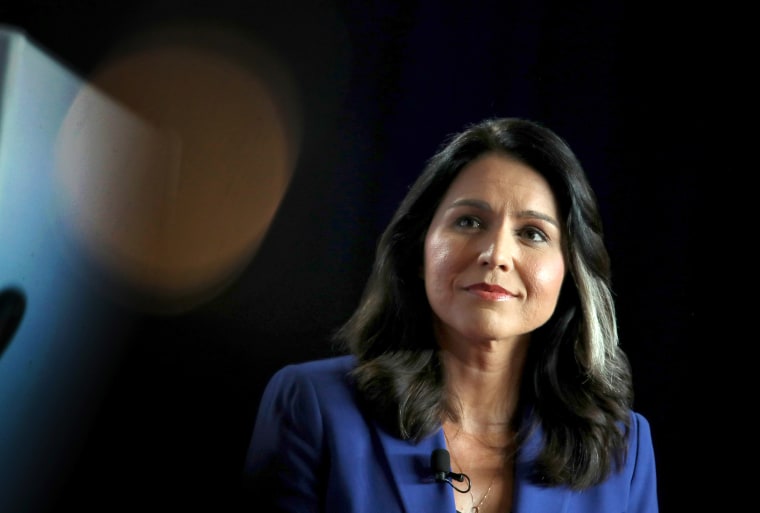Rep. Tulsi Gabbard, one of the Democrats seeking the party’s nomination for president in 2020, sued Google on Thursday for suspending her advertising account.
The lawsuit adds to a chorus of bipartisan complaints against Google and other tech companies over the power they’ve accumulated as censors and gatekeepers in areas such as politics, advertising and free speech.
Lawyers for Gabbard, D-Hawaii, filed the suit in federal district court in Los Angeles.
According to the suit, Google suspended Gabbard’s advertising account without warning June 28, hours after the end of a Democratic presidential primary debate in which she participated. She alleges that Google gave conflicting and false reasons for the suspension before reinstating the account hours later.
The suit says the suspension was part of an intentional pattern by Google, which the suit calls a monopoly.
“In context, the explanation for Google’s suspension of the Account at exactly the wrong time is no great mystery: Google (or someone at Google) didn’t want Americans to hear Tulsi Gabbard’s speech, so it silenced her,” the suit says.
The lawsuit also says Google disadvantages Gabbard by “manipulating Gmail Spam algorithms to target communications from Tulsi,” resulting in email from her going to spam folders at a disproportionately high rate. The suit doesn’t cite data or other evidence for the claim.
Google spokeswoman Riva Sciuto said that an automated system triggered the suspension.
“We have automated systems that flag unusual activity on all advertiser accounts — including large spending changes — in order to prevent fraud and protect our customers,” Sciuto said in a statement.
“In this case, our system triggered a suspension and the account was reinstated shortly thereafter. We are proud to offer ad products that help campaigns connect directly with voters, and we do so without bias toward any party or political ideology.”
The company has the largest share of the worldwide digital ad market, with 31 percent of all digital ad revenue, according to research firm eMarketer. Google’s grip on ads related to searches is even tighter, with 61 percent of the market worldwide.
Democratic and Republican politicians have shown growing frustration with the power of social media companies and Silicon Valley generally. In 2017, Twitter blocked an abortion-related video ad from Sen. Marsha Blackburn, R-Tenn., before reversing itself and allowing it.
